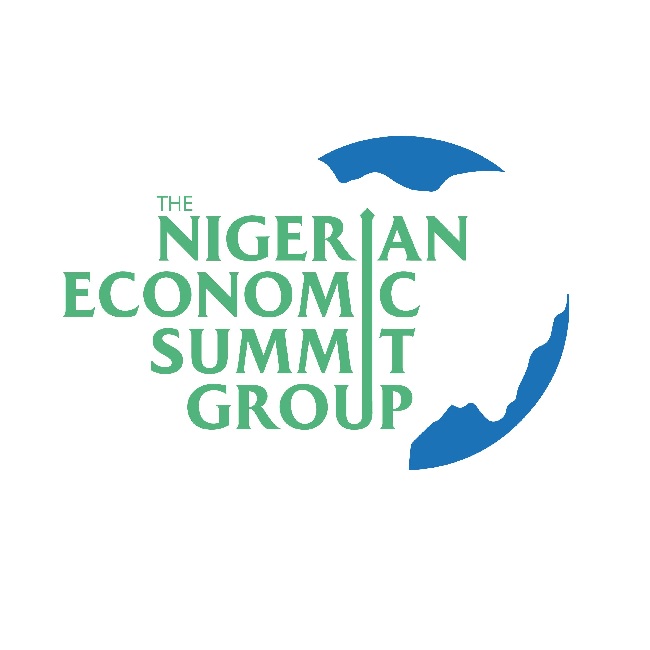Board member of the Nigerian Economic Summit Group (NESG), Mr Frank Aigbogun, has advocated a paradigm shift in Nigeria’s tax processes.
He spoke at a pre- 28th Nigerian Economic Summit (#NES28) event in Abuja with the theme “Critical Tax Reforms for Shared Prosperity”.
He noted that Nigeria suffers from low tax compliance and that the country’s tax to Gross Domestic Product(GDP) ratio stands at 6 percent, which is significantly lower than the average across African countries, which stands at 18 percent.
According to him, taxes should promote economic growth, especially for Micro Small and Medium Enterprises(MSMEs) that contribute a huge part of the GDP to the country.
He explained that taxes could help to finance public education,healthcare, offering better chances for people to improve their economic status as well as become the financial backbone of social security, protecting the poor.
He expressed that policy weaknesses, lack of reforms, and public understanding prevent taxes from playing a significant role in the development of the country.
He observed that tax revenue is critical for government to finance its activities as well as financial development objectives for shared prosperity and promote the efficiency of government and the economy.
He added that the introduction of a yearly Finance Act has supported tax legislation and encouraged policy implementation, which can be strengthened by addressing issues related to tax compliance, taxation and support to households and enterprises.
In his presentation,NESG Fiscal Policy and Planning Thematic Group, Mr. Taiwo Oyedele, said Nigerian economy is facing several challenges, including reduced foreign remittances, heightened insecurity, multiple exchange rate windows, low tax to GDP ratio and a high debt service cost to GDP ratio.
He noted that some of the taxation issues include the introduction of new taxes on corporates, Naira devaluation, increased inflation at 18.6 %, unemployment at 33%, poor policy coordination, petroleum subsidy and geopolitical tension/crisis.
Oyedele stated that the economy is affected by debt/taxes, politics and policies, geopolitical crises, insecurity and petroleum subsidies.
“Nigeria’s fiscal landscape has been bolstered by the national tax policy 2019, resulting in annual changes through the Finance Act.Improved coordination at subnational levels, improved capacity for revenue mobilisation and the funding of the Federal allocation committee from taxes.
“Nigeria has a small tax base that continues to face structural problems. We need to focus on tax harmonisation that is broad-based and properly defined,” he said.
Mr Rajul Awasthi, Senior Public Sector Specialist, Domestic Resource Mobilisation, World Bank, said Nigeria is a critical pivot for Africa’s progress, pointing out Nigerian government is facing an existential crisis.
He predicted that Nigeria’s accrued revenues will be significantly lower this year due to the debilitating impact of the fuel subsidy.
He stated that the Value Added Tax (VAT) compliance gap was immense, noting that in 2019, 3.1 trillion Naira was collected compared to 1.1 trillion Naira in 2021.
“There is a need to rationalise tax expenditures, data sharing between Federal Inland Revenue Service (FIRS) collectors and State Inland Revenue Service (SIRS) collectors. Property tax reforms, excise reforms through policy measures and a reform of the PMS subsidy regime by moving towards full elimination by 2024 are essential in improving Nigeria’s tax revenue,” he stated.
At the panel session, the Executive Secretary of the Joint Tax Board, Ms. Aisha Obomeghie, said that there was an urgent need to streamline taxes and levies collected by Federal and State governments.
She also emphasized the need to build up a robust database that will aid the collection of the right amounts of taxes, noting that the solution does not lie in introducing new taxes and agencies but in finding ways to enhance tax collection, which will help fund Nigeria’s recurrent expenditure.
She disclosed that tax revenue sharing between Federal and State governments is being worked on assiduously, noting that Nigeria’s tax system still faces the problem of capacity building and integration.
Director-General of Manufacturers Association of Nigeria(MAN),Mr. Segun Ajayi-Kadiri, said there was no doubt that the country needed money but that the government must exercise caution in introducing more taxes.
Ajayi-Kadiri, represented by the Director of Research and Advocacy, Mr. Oluwasegun Osidipe,tasked the government to expand the tax base, ensure the inclusion of more people in the informal sector and make the tax system progressive such that the rich would pay more than the poor.
Founder, Accounting Hub, Ms. Chioma Ifeanyi Eze, said Nigeria remains the largest economy in Africa and that SMEs form a considerable part of this, adding that critical reforms that would bring about prosperity in Nigeria must include MSMEs.

